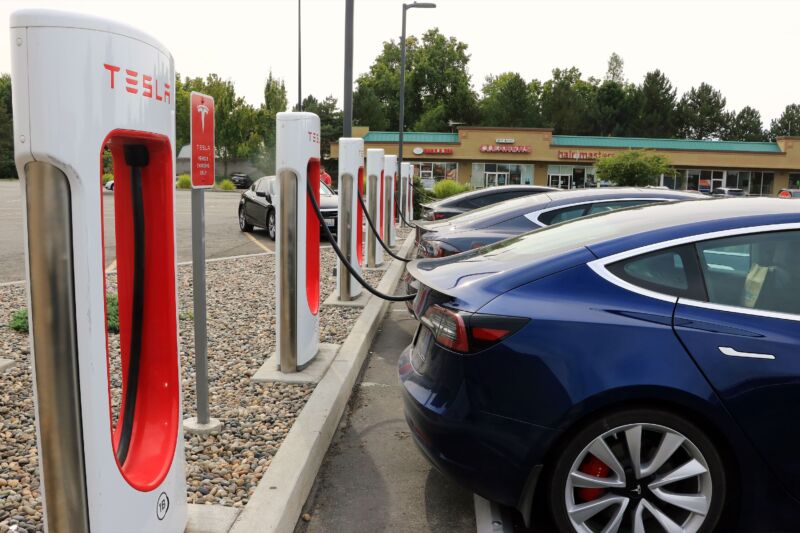Calculating the positive impact of electric car adoption

Enlarge / A row of Tesla EVs charging at one of the company's Supercharger fast charging locations. (credit: Don and Melinda Crawford/UCG/Universal Images Group via Getty Images)
These days Tesla gets a lot of flak, but sometimes it does great things. In 2008, it launched the Tesla Roadster-the first serial production lithium-ion battery car. Unlike previous electric cars, the Roadster was fast, sexy, and luxurious. Since its release, more than 12 million electric cars have been sold worldwide, with Tesla contributing over 1 million to that number.
But what if Tesla never existed or never sparked the electric car revolution-would we have millions of electric cars on the road today? Of course, the electric car revolution would have happened eventually. But it was only two years before the Roadster's release that the death of the electric car was being lamented in the infamous documentary Who Killed the Electric Car? If the big automakers really did kill the electric car, as the documentary suggests, then Tesla surely revived it.
That's great news for Earth's future inhabitants. Taking action to reduce the harms of climate change, by buying an electric car, for instance, is an urgent matter. Just last year, a study from Nature Communications estimated that "adding 4,434 metric tons of carbon dioxide in 2020-equivalent to the lifetime emissions of 3.5 average Americans-causes one excess death globally in expectation between 2020-2100."
Read 6 remaining paragraphs | Comments